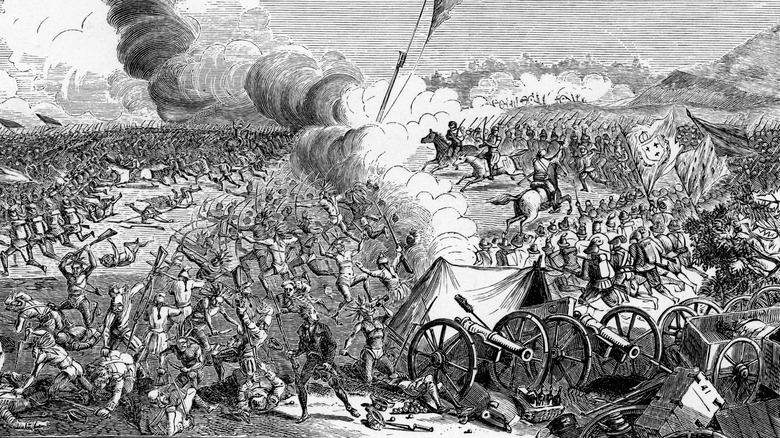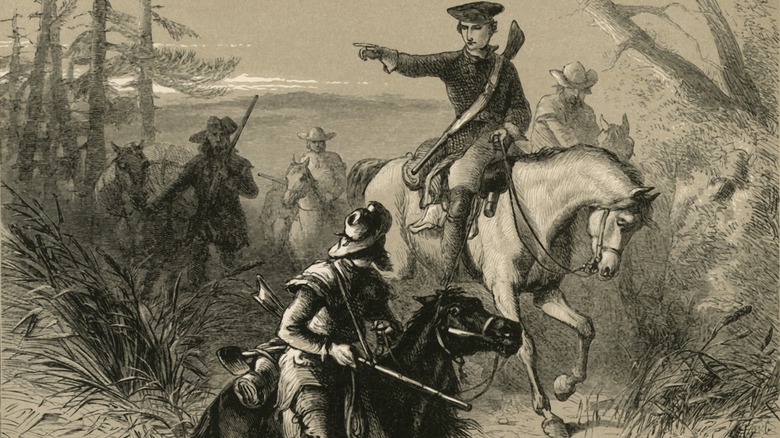What Really Caused The French And Indian War?
Great Britain and France both wanted control over North America, and conflicts over territory between these rivals fueled the start of the French and Indian War. This clash was Great Britain and France's latest round of battling about the region. Their previous confrontation, King George's War, ended in 1748 with the Treaty of Aix-la-Chapelle (via French and Indian War Society). But it was only a few years later that trouble started up again between the two nations.
Before the French and Indian War, Britain had its own colonies on the East Coast of North America, which had roughly 1 million inhabitants (American Battlefield Trust). France, on the other hand, had approximately 60,000 people living in New France, which reached from Canada to Louisiana and included the Great Lakes and Mississippi River areas (via the Department of State's Office of the Historian). While Britain sought to colonize North America, France wanted these lands for their rich resources and the economic opportunities they provided.
All the action kicked off in the upper Ohio River valley. Both France and Great Britain believed the area to belong to them. The French had established many alliances with the Native Americans in the region and relied on these relationships for trade. British settlers and traders also moved into the valley. France moved to aggressively assert their claim of ownership. In 1752, French forces destroyed a British trading post on the Great Miami River (via Britannica).
George Washington fires first shots of war
The French continued its efforts to control the region by building more forts. This didn't sit well with the British, especially those in Virginia with a claim to those lands. In 1753, George Washington acted as a representative of the Virginia colony and delivered a message to a French commander at Fort Le Boeuf that declared British ownership of the disputed area, but the French wouldn't budge (via Mount Vernon). In 1754, forces from Virginia tried to establish a fort where the Allegheny and Monongahela Rivers meet the Ohio River, but French forces pushed them out and built Fort Duquesne there instead (via American Battlefield Trust).
Washington took charge of a Virginia militia and camped out with his men near Fort Duquesne in May 1754. The French soon sent out a scouting party to get information on the Virginians, but the mission turned deadly (via American Battlefield Trust). Washington, his militia, and some supporters from the Iroquois surprised the French soldiers and killed nine of them. Many historians consider this skirmish as the unofficial beginning of the French and Indian War. The French got their revenge that July by attacking Washington at Fort Necessity, and Washington was forced to surrender (via French and Indian War Society). He resigned after this defeat, but the British pressed on against the French. Great Britain battled the French near Fort Duquesne and near Lake George the following year and officially declared war with France in 1756.

